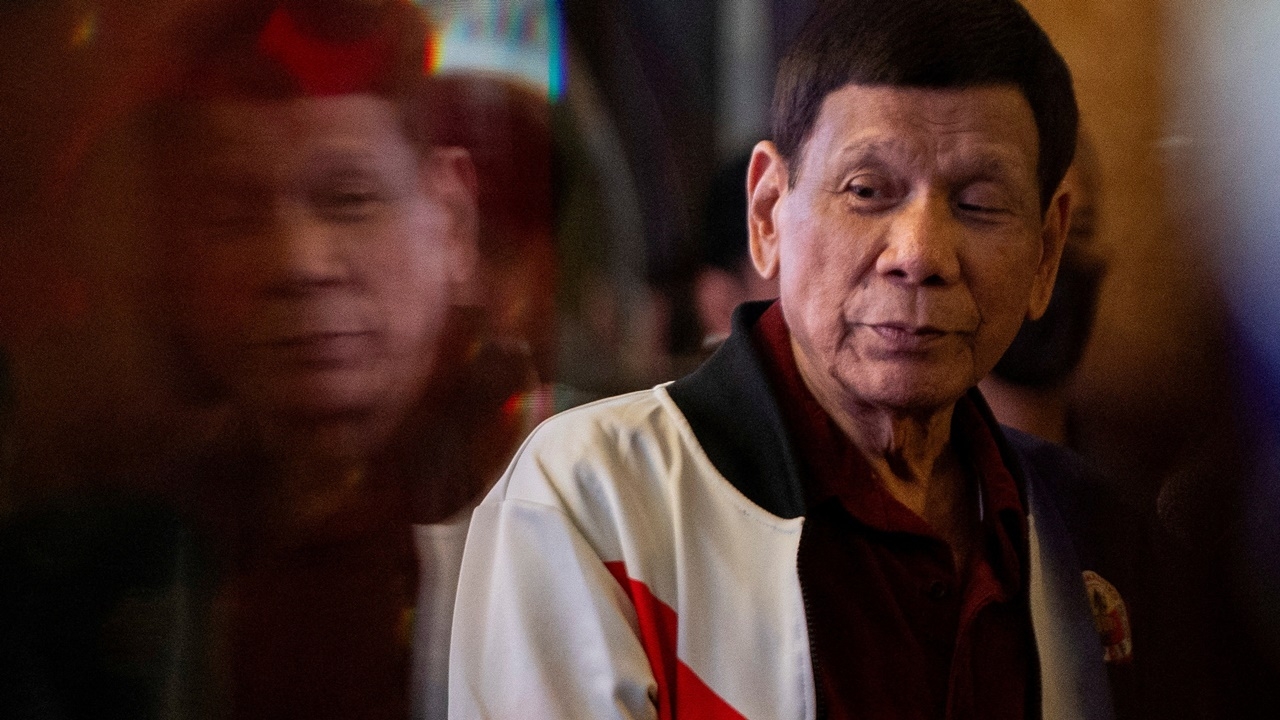The former President of the Philippines, Rodrigo Duterte, has been arrested and taken to The Hague to face trial for crimes against humanity. This dramatic turn of events stems from his controversial war on drugs, which has left a trail of death and devastation in its wake. As the story unfolds, it’s essential to delve into the circumstances that led to this moment and the backdrop of his presidency, marked by a relentless campaign against drug crime that ultimately resulted in thousands of deaths.
Duterte’s ascent to power was marked by his tough stance on crime, particularly drug trafficking. As the mayor of Davao City, he earned the nickname “The Punisher” for his uncompromising attitude towards criminals. This approach resonated with many Filipinos, who were frustrated with the high levels of crime and corruption in the country. During his presidential campaign, he famously said, “Forget the law, forget the human rights… If I make it to the presidential palace, I will do just what I did as mayor.” His campaign promises included a vow to eradicate crime and corruption within six months, a pledge that proved overly ambitious and ultimately led to a wave of violence.
The war on drugs, which began in 2016, quickly spiralled out of control, with thousands of suspected drug users and dealers being killed, many in extrajudicial executions. The victims included not just adults but also children, with reports of minors being caught in the crossfire or directly targeted. The methods used by the police and vigilantes were often brutal, with bodies found dumped in streets, canals, and other public places, sometimes with signs of torture or execution-style killings.
The international community and human rights groups condemned the violence, but within the Philippines, Duterte remained popular, with many Filipinos supporting his tough stance on crime. However, the toll on human life was staggering, with estimates suggesting over 30,000 deaths, a figure that is feared to be even higher due to underreporting. The killed included innocent bystanders, children, and even police officers who were suspected of being involved in the drug trade.
Some of the most egregious cases include the killing of children, such as the case of Myka Ulpina, a child shot during a police operation, and Althea Barbon, killed alongside her father. Perhaps the most infamous case is that of Kian delos Santos, a 17-year-old boy killed by police in a alleyway near his home. CCTV footage showed the boy being dragged away by police before being shot, contradicting the police claim that he was armed and had resisted arrest.
Despite the mounting evidence of human rights abuses, Duterte’s government largely denied any wrongdoing, claiming that the deaths were either justified or the result of legitimate police operations. However, investigations by human rights groups and journalists uncovered patterns of abuse and cover-ups, including the planting of evidence and the intimidation of witnesses and families of victims.
The International Criminal Court (ICC) began preliminary investigations into the situation in the Philippines in 2018, but the government’s withdrawal from the ICC in 2019 in response to the probe did not stop the investigations. The ICC’s Rome Statute allows it to investigate crimes committed while a country was a member, even if it later withdraws. After a pause, the ICC resumed its investigation in 2022, stating that it was not satisfied with the Philippine government’s efforts to investigate the alleged crimes.
The arrest of Duterte marks a significant moment in the quest for accountability for these crimes. The process has been long and fraught, with the current Philippine government initially resisting cooperation with the ICC before changing its stance. The path to justice for the victims and their families has been arduous, but the determination of human rights advocates, families of the victims, and the international community has kept the issue in the spotlight.
As the world watches the developments in The Hague, the story of Duterte’s war on drugs serves as a stark reminder of the dangers of unchecked power and the importance of upholding human rights, even in the face of popular sentiment or political pressure. The pursuit of justice, though slow and challenging, remains a beacon of hope for a more just and equitable society.
This story is based on reports from Reuters and Al Jazeera.

